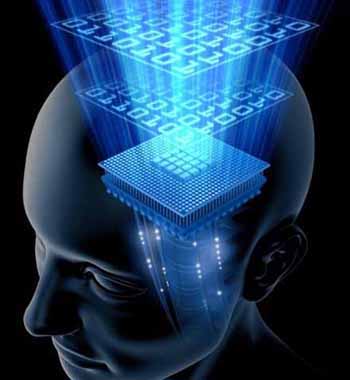
Reality is a consciousness simulation created by digital codes. Numbers, numeric codes, define our existence and experiences. Human DNA, our genetic memory, triggers (remembers) by digital codes at specific times and frequencies as we experience. Those codes awaken the mind to the change and evolution of consciousness.
The brain is an electrochemical machine (computer) that processes through binary code zeroes and ones that create patterns of experiences and realities.

The illusion of physical reality is created by the patterns of the Fibonacci Sequence - the Golden Spiral of Consciousness consisting of zeros and ones that align with the brain.


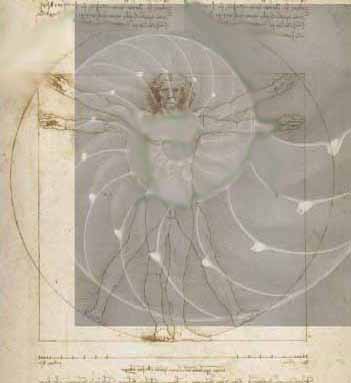
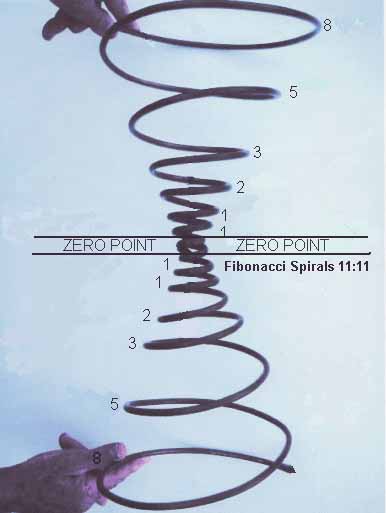

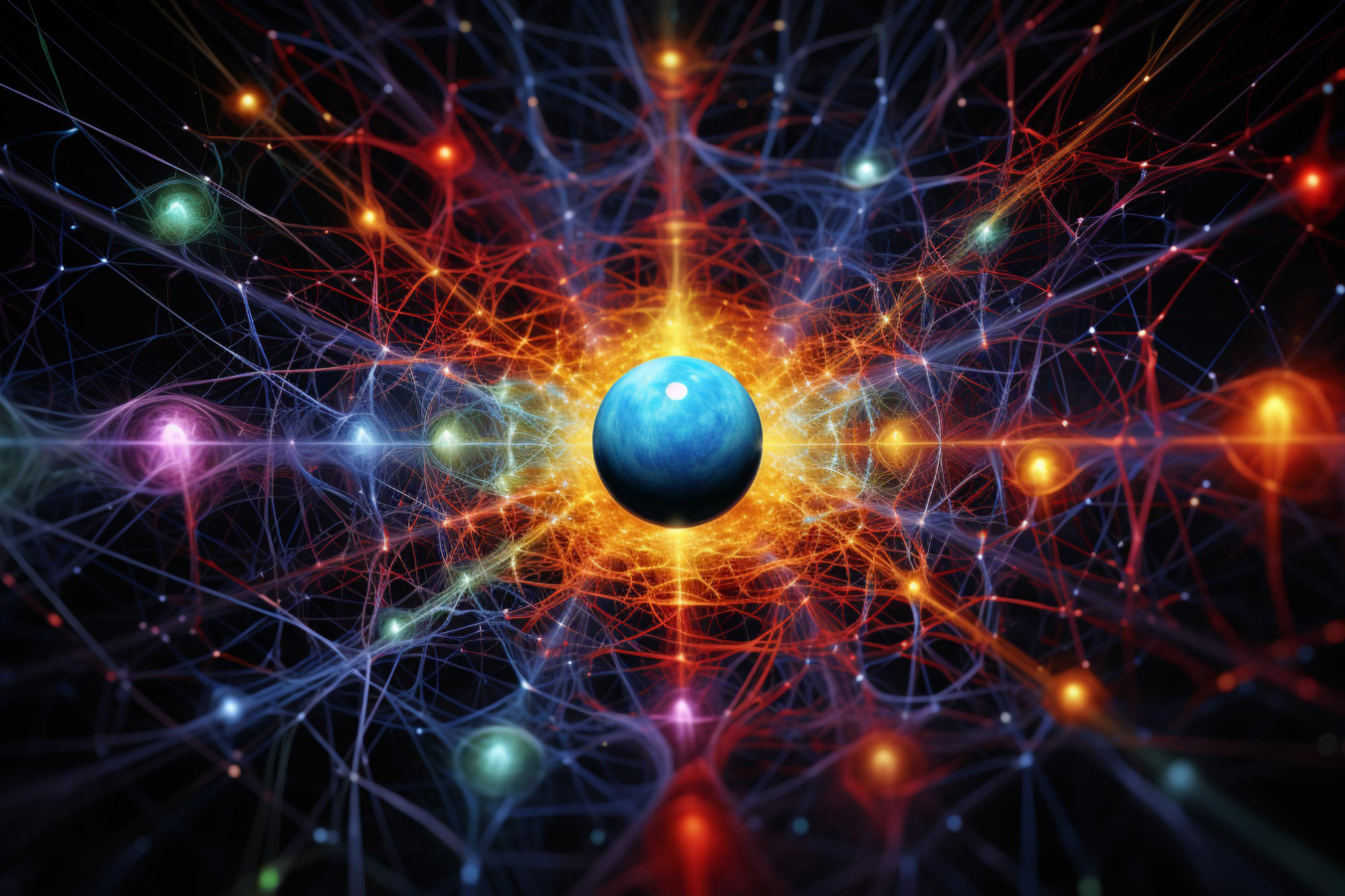
Results show that the physical reality of an object cannot be separated from the context of all its interactions with the environment, past, present, and future, providing strong evidence against the widespread belief that our world can be reduced to a mere configuration of material building blocks
The ultimate answer is that it appears to be a matter of interpretation.
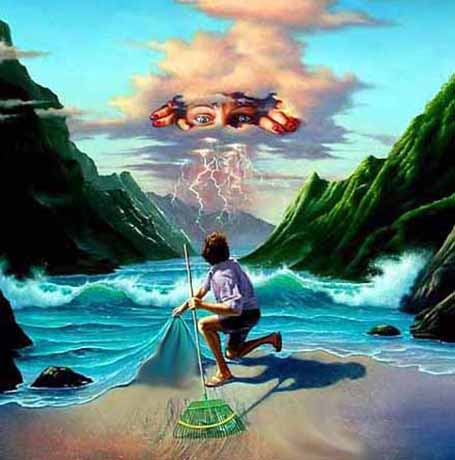
Reality is a computer generated consciousness hologram in which the characters it creates at the physical level are programmed to believe it is real.
Reality is a game of illusion, delusion, perception and deception.
Reality is about the evolution of consciousness in the alchemy of time.
Reality is about experience and learning.
Reality is virtual, perceived through conscious awareness. We exist in a biogenetic experiment to experience emotion through the construct of linear time. All and everything is created by geometric design following the patterns of sacred geometry. Reality appears to move in synchronized linear fashion creating the illusion of time, also known as the loops/cycles of time, wheel of karma, or the alchemy wheel.

Reality began with a tone (big bang that continues to pulsate and create) - (horns, cones, harmonics, soul notes) and spiraling light (consciousness) which create ongoing and endless grids in which souls virtually experience. Grids have frequencies to which souls attach for that experience. Souls enter one or more grids in which they experience simultaneously.
Reality is never the same. Like the flow of the collective unconsciousness, it is forever in motion creating new patterns of experience. Consciousness spirals like a slinky, mirroring the movement, or evolution, of DNA. The higher your consciousness moves up the slinky, the faster the vibrational frequency - the faster you think, create, understand higher holographic archetypes of reality, and increase your manifestation in physical reality.
Your thoughts/consciousness begin at the top and spiral down to the physical realms which are so slow moving - you forget the nature of reality - that which is above. Now as we approach the end of the reality experiment, everything moves into higher frequency until it ceases to exist from the physical, returning to light and total consciousness.
Prophecies throughout time bring the same message about this timeline being the end of the cycles of time evolving into something more - something non-physical - the return to light.
You see it all around you as the grids that maintain our physical connection are collapsing. Along with this we are witnessing the collapse of economic, political, social, and religious systems. Natural disasters are accelerating exponentially allowing souls to understand everything is changing. We are running out of Time, that which holds the Illusion in place.
We are light beings (consciousness from a creational source) having a physical experience, evolving back to our natural state.
This reality program is about to end/evolve. Some people link this with 2012 - a metaphor for the return to consciousness. You can't put an exact date on it, if time is an illusion.
Indigenous people have always understood that reality
is an illusion or dream from which we will awaken.

Mythology: Hopi Ant People, Snake People, Blue Kachina, Star Gods

The Apache and other Pueblo Indians, such as the Zunis and Hopi, have legends about their ancestors emerging from an underground world, generally after some cataclysmic event, as if a cycle in time, or another reboot in the programmed realities of the human experiment, always linked to star gods, or star people, who brought them here from outer space. Hopi Prophecy speaks of the return of the Blue Kachina, or Star People at the end of this cycle of time.
They speak of the Snake People (metaphor for human DNA) and the Ant People (gray aliens,) who protected them beneath the surface. Physical reality is a metaphor for 'beneath the surface'. To rise above is to return to higher consciousness, through the Back Hole (Eye of Time) or the Stargate of human creation.
Reality in everyday usage means "everything that exists". The term "Reality", in its widest sense, includes everything that is, whether it is observable, accessible or understandable by science, philosophy, theology or any other system of analysis. Reality in this sense may include both being and nothingness, whereas existence is often restricted to being (compare with nature).
In the strict sense of Western philosophy, there are levels or gradation to the nature and conception of reality. These levels include, from the most subjective to the most rigorous: phenomenological reality, truth, fact, and axiom.
Other philosophies, particularly those founded in Buddhism, have different explications of reality. Conceptions of reality in Buddhism include: dharma, paramattha dhamma, samsara and maya.
On a much broader and more subjective level, the private experiences, curiosity, inquiry, and selectivity involved in the personal interpretation of an event shapes reality as seen by one and only one individual and hence is called phenomenological. This form of reality might be common to others as well, but at times could also be so unique to oneself as to be never experienced or agreed upon by any one else. Much of the spiritual experience of an individual occurs on this level of reality.
When two or more individuals agree upon the interpretation and experience of a particular event, a consensus about an event and its experience begins to be formed. This being common to a few individuals or a larger group, then becomes the 'truth' as seen and agreed upon by a certain set of people. Thus one particular group may have a certain set of agreed truths, while another group might have a different set of truths that have reached consensus.
This lets different communities and societies have varied and extremely different notions of reality and truth of the external world. The religion and beliefs of people or communities are a fine example of this level of reality. This is well expressed in the famous quote by Henry Thoreau, "It takes two to speak the truth - one to speak and another to hear." However, humans are fallible and are limited to individual experience. Truth cannot simply be considered truth if one speaks and another hears because individual bias and fallibility take away any assertion that the idea of truth, itself, exists.
Other views of truth assert that truth is that which is considered to be the supreme reality and to have the ultimate meaning and value of existence, regardless of subjective inference. Truth can not merely be discerned by deductive reasoning but can only be more deeply understood by inductive study and skepticism.
A fact or factual entity is a phenomenon that is perceived as an elemental principle. It is rarely one that could be subject to personal interpretation. Instead it is most often the observed phenomena of the natural world. The proposition 'the sun rises in the east', is a fact. It is a fact for people belonging to any group or nationality regardless of which language they speak or which part of the hemisphere they come from.
The Galilean proposition in support of the Copernican theory, that the sun is the centre of the solar system is one that states the fact of the natural world. However during his lifetime Galileo was ridiculed for that factual proposition, because far too few people had a consensus about it in order to accept it as a truth. Fewer propositions are factual in content in the world, as compared to the many truths shared by various communities, which are also fewer to the innumerable individual phenomenological realities. Much of scientific exploration, experimentation, interpretation and analysis is done on this level.
This view of reality is well expressed by Philip K. Dick's statement that "Reality is that which, when you stop believing in it, doesn't go away."
Axioms are self-evident realities, the existence of which is accepted as given and on which further conceptions are generated.The facts of a natural world would hold true only in the systemic construction of that world. Hence in a different system, the facts of another world might no longer hold valid. The fact that 'the sun rises in the east', might not be valid in a different solar system where the planet might be tilted in a different angle, or revolving in a different direction around its star, so that the star might rise on the planet's horizon in the west instead of the east. Hence the facts of a systemic entity might not be universal outside the realms of that system. However, exceptionally rare conceptions might be universal in ethos.
Mathematical formulations and propositions in mathematical logic are based on axioms, and hence these fields are often referred to as pure disciplines. The validity of the set theoretic proposition would hold true in any systemic process or universe. Its validity is self evident in ontological existence and works on the axiomatic level of reality.Some portion of ultimate reality may lie beyond our scope to examine or even imagine. Many of the concepts of science and philosophy are often defined culturally and socially.
This idea was well elaborated by Thomas Kuhn in his book The Structure of Scientific Revolutions (1962). Most of the cultural conflict in the world occurs when certain individuals or groups try to impose their phenomenological realities or truths on other people or communities.
"Reality", the concept, is contrasted with a wide variety of other concepts, largely depending upon the intellectual discipline. It can help understand what we mean by "reality" to note what we say is not real but usually if there is no original and related proofs it isn't reality.
In philosophy, reality is contrasted with nonexistence (penguins do exist; so they are real) and mere possibility (a mountain made of gold is merely possible, but is not real) unless they are discovered. Sometimes philosophers speak as though reality is contrasted with existence itself, though ordinary language and many other philosophers would treat these as synonyms. They have in mind the notion that there is a kind of reality - a mental or intensional reality, perhaps - that imaginary objects, such as the aforementioned golden mountain, have.
Alexius Meinong is famous, or infamous, for holding that such things have so-called subsistence, and thus a kind of reality, even while they do not actually exist. Most philosophers find the very notion of "subsistence" mysterious and unnecessary, and one of the shibboleths and starting points of 20th century analytic philosophy has been the forceful rejection of the notion of subsistence - of "real" but nonexistent objects.It is worth saying at this point that many philosophers are not content with saying merely what reality is not - some of them have positive theories of what broad categories of objects are real, in addition.
In ethics, political theory, and the arts, reality is often contrasted with what is ideal.One of the fundamental issues in ethics is called the is-ought problem, and it can be formulated as follows: "Given our knowledge of the way the world is, how can we know the way the world ought to be?" Most ethical views hold that the world we live in (the real world) is not ideal - and, as such, there is room for improvement.
Political theory is often an extension of the above. Few (if any) political views hold that the world we live in is the best possible world. Most political views argue that the world - or, more specifically, present-day society - could be improved in one way or another, and propose various means to achieve such an improvement.In the arts there was a broad movement beginning in the 19th century, realism (which led to naturalism), which sought to portray characters, scenes, and so forth, realistically.
This was in contrast and reaction to romanticism, which portrayed their subjects idealistically. Commentary about these artistic movements is sometimes put in terms of the contrast between the real and the ideal: on the one hand, the average, ordinary, and natural, and on the other, the superlative, extraordinary, improbable, and sometimes even supernatural.
Obviously, when speaking in this sense, "real" (or "realistic") does not have the same meaning as it does when, for example, a philosopher uses the term to distinguish, simply, what exists from what does not exist.In the arts, and also in ordinary life, the notion of reality (or realism) is also often contrasted with illusion.
A painting that precisely indicates the visually-appearing shape of a depicted object is said to be realistic in that respect; one that distorts features, as Pablo Picasso's paintings are famous for doing, are said to be unrealistic, and thus some observers will say, but with questionable grammatical correctness, that they are "not real."
But there are also tendencies in the visual arts toward so-called realism and more recently photorealism that invite a different sort of contrast with the real. Trompe-l'oiel (French, "fool the eye") paintings render their subjects so "realistically" that the casual observer might temporarily be deceived into thinking that he is seeing something, indeed, real - but in fact, it is merely an illusion, and an intentional one at that.In psychiatry, reality, or rather, the idea of being in touch with reality is integral to the notion of schizophrenia, since it has often been defined in part by reference to being "out of touch" with reality.
The schizophrenic is said to have hallucinations and delusions which concern people and events that are not real. However, there is controversy over what is considered out of touch with reality, particularly due to the noticeable comparison of the process of forcefully instituting individuals for expressing their beliefs in society to reality enforcement.
The practice's possible covert use as a political tool can perhaps be illustrated by the 18th century psychiatric sentences in the U.S. of black slaves for 'crazily' attempting to escape.
In each of these cases, discussions of reality, or what counts as "real", take on quite different casts; indeed, what we say about reality often depends on what we want to say it is not.
A common colloquial usage would have "reality" mean "perceptions, beliefs, and attitudes toward reality," as in "My reality is not your reality." This is often used just as a colloquialism indicating that the parties to a conversation agree, or should agree, not to quibble over deeply different conceptions of what is real.
For example, in a religious discussion between friends, one might say (attempting humor), "You might disagree, but in my reality, everyone goes to heaven."
But occasionally - and particularly in the case of those who have been exposed to certain ideas from philosophy, sociology, literary criticism, and other fields - it is thought that there simply and literally is no reality beyond the perceptions or beliefs we each have about reality.
Such attitudes indicate anti-realism, that is, the view that there is no objective reality, whether acknowledged explicitly or not.
If we really do literally mean by "reality" simply "beliefs about reality," then our article about reality would necessarily, to be complete, have to outline every world view (this is how the German word Weltanschauung is usually translated) - every broadly different way of "seeing" reality.
In this sense, the topic of reality encompasses many other topics: perception, psychology generally, cognitive psychology and cognitive science, religion, sociology and anthropology, and topics in philosophy.
But there is a way to make the topic of reality less cumbersome for present purposes: restrict the discussion to theories about the general topic of reality itself. Thus, for example, a certain Christian world view would not count as a theory of reality, but the theory that the Christian world view is a "construction" of reality would count as a theory about reality.
It is theories about reality, in this sense, that philosophers discuss as part of metaphysics; such theories are also sometimes discussed in literary theory (which is, today, heavily influenced by Continental philosophy and heavily anti-realist) as well as in sociology and cultural anthropology.
Philosophy addresses two different aspects of the topic of reality: the nature of reality itself, and the relationship between the mind (as well as language and culture) and reality.
On the one hand, ontology is the study of being, and the central topic of the field is couched, variously, in terms of being, existence, "what is", and reality. The task in ontology is to describe the most general categories of reality and how they are interrelated. If - what is rarely done - a philosopher wanted to proffer a positive definition of the concept "reality", it would be done under this heading. As explained above, some philosophers draw a distinction between reality and existence. In fact, many analytic philosophers today tend to avoid the term "real" and "reality" in discussing ontological issues. But for those who would treat "is real" the same way they treat "exists", one of the leading questions of analytic philosophy has been whether existence (or reality) is a property of objects. It has been widely held by analytic philosophers that it is not a property at all, though this view has lost some ground in recent decades.
On the other hand, particularly in discussions of objectivity that have feet in both metaphysics and epistemology, philosophical discussions of "reality" often concern the ways in which reality is, or is not, in some way dependent upon (or, to use fashionable jargon, "constructed" out of) mental and cultural factors such as perceptions, beliefs, and other mental states, as well as cultural artifacts, such as religions and political movements, on up to the vague notion of a common cultural world view or Weltanschauung.
The view that there is a reality independent of any beliefs, perceptions, etc., is called realism. More specifically, philosophers are given to speaking about "realism about" this and that, such as realism about universals or realism about the external world. Generally, where one can identify any class of object the existence or essential characteristics of which is said to depend on perceptions, beliefs, language, or any other human artifact, one can speak of "realism about" that object.
One can also speak of anti-realism about the same objects. Anti-realism is the latest in a long series of terms for views opposed to realism. Perhaps the first was idealism, so called because reality was said to be in the mind, or a product of our ideas. Berkeleyan idealism is the view, propounded by the Irish empiricist George Berkeley, that the objects of perception are actually ideas in the mind. On this view, one might be tempted to say that reality is a "mental construct"; this is not quite accurate, however, since on Berkeley's view perceptual ideas are created and coordinated by God. By the 20th century, views similar to Berkeley's were called phenomenalism.
Phenomenalism differs from Berkeleyan idealism primarily in that Berkeley believed that minds, or souls, are not merely ideas nor made up of ideas, whereas varieties of phenomenalism, such as that advocated by Russell, tended to go farther to say that the mind itself is merely a collection of perceptions, memories, etc., and that there is no mind or soul over and above such mental events.
Finally, anti-realism became a fashionable term for any view which held that the existence of some object depends upon the mind or cultural artifacts. The view that the so-called external world is really merely a social, or cultural, artifact, called social constructionism, is one variety of anti-realism. Cultural relativism is the view that social issues such as morality are not absolute, but at least partially cultural artifact.